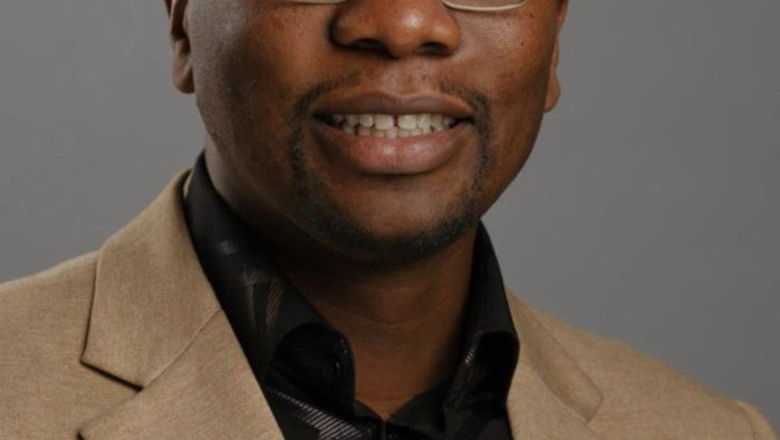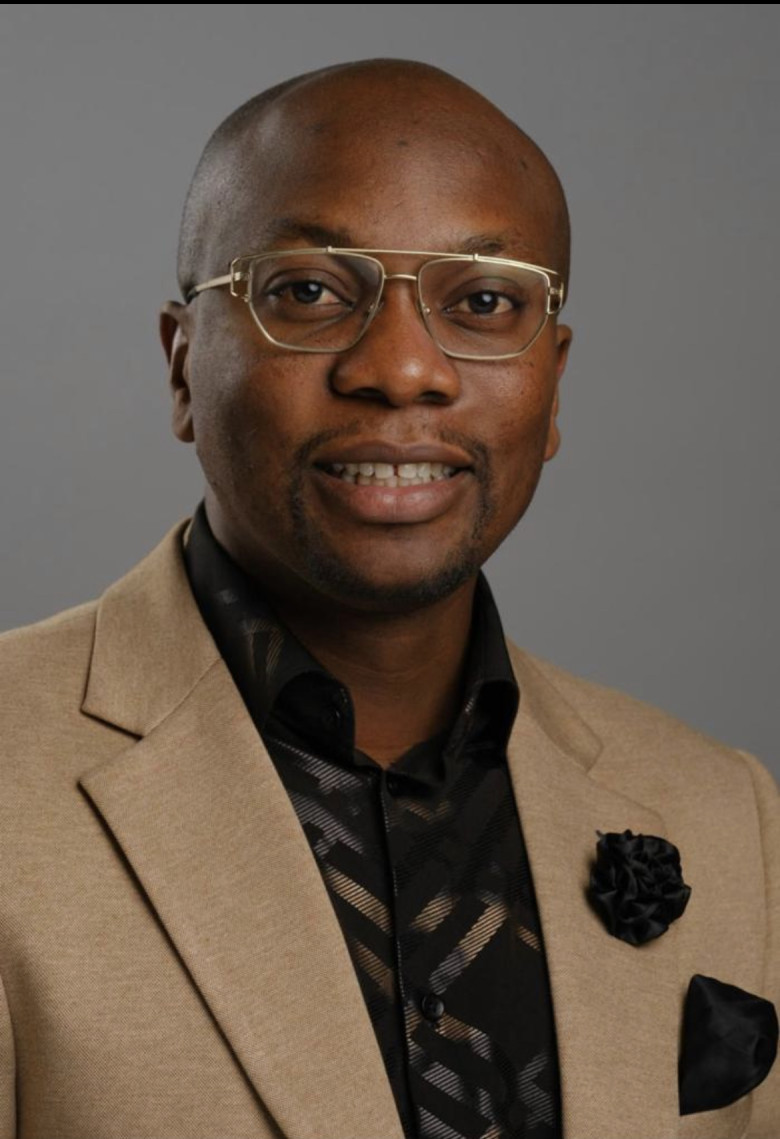views


Dr. Wale Oyebanji started his training as a medical doctor in Nigeria then transferred to the Caribbean Island (St. Kitts & Nevis), and moved back to Nigeria after medical school in 2008 where he practiced medicine for about eight years before going to business school in the United States and doing a Masters in Public Health in the United Kingdom.
He has well over a decade of cross-country and continental medical experience and shares his thoughts on his journey as a medical doctor, the challenges of practicing in the US, how the Nigerian healthcare sector can improve, and how Nigerian Nationals can be healthier with Tony Ademiluyi.
Enjoy the candid talk!
Buzz Times: Why did you decide to become a medical doctor? Most doctors are believed to be nerds. Can you describe yourself as one?
Dr. Wale Oyebanji: Actually, I’m not, I’ll like to think of myself as someone who is intellectually curious and passionate about solving problems. Growing up, I often heard my folks and families talk about some of the challenges with the healthcare system and I always wanted to be part of those who will help address these challenges and proffer solutions that will improve health outcomes globally.
Buzz Times: You studied medicine in two different countries. Can you share your experiences in each of them highlighting their peculiar strengths and weaknesses? Which holds the fondest memories for you?
Dr. Wale Oyebanji: I started medical school in Nigeria at Igbinedion University and transferred after my 3rd year to Windsor University School of Medicine in St. Kitts & Nevis. The teaching method was quite different, in Nigeria, the teachers were like gods and made it such a challenging experience in a negative way but when I transferred my experience was different. The teachers were more collaborative, engaging, and committed to your success. The Caribbeans, surely! I completely enjoyed my school and life balance experience. The clinical rotations were quite insightful and provided a lot of hands-on experience for us.
Buzz Times: A senior and multiple award-winning Nigerian Journalist, (name withheld) told me that Nigerian Doctors who relocate permanently or japa are ingrates. His argument is that the cost of studying medicine in Nigeria is highly subsidized by the Nigerian Government and so they should on conscience grounds work for some time to give back to the country before they japa. Since you partly trained in Nigeria, do you share that view?
Dr. Wale Oyebanji: I understand the perspective of the journalist. The cost of medical education in government-owned universities is way cheaper than what you pay in schools in the US/UK where the majority of our doctors go, so it feels like we are training the doctors for these countries. I also understand the frustration from the angle of these physicians that leave the country. The reasons are multi-factorial -compensation, poor health facilities, burn-out, professional development, etc. I hope the government will consider this brain drain as a healthcare emergency and commit to addressing these challenges
Buzz Times: In the West, most CEOs of hospitals are hospital administrators who are not necessarily medical doctors. Should Nigerian hospitals follow suit so that they can be more profitable and better administered? Having worked in Nigeria for some time before relocating to the US, how can we have more mega hospitals – probably publicly quoted ones in Nigeria so that there will be better succession planning?
Dr. Wale Oyebanji: I agree! I worked at the University of Pennsylvania Health System (Penn Medicine), which was the first hospital in the US, for about a year in an administrative capacity and was completely thrilled about how well ran the health system was. I think the revenue that year was about $8bn and got me thinking about how we can make our health systems and hospitals more profitable in Nigeria. Where there are able to compete with other private hospitals to be self-sustaining while still able to cater to the needs of the poor. Not all doctors are good administrators and it’s important that we also explore such models in our country which may create opportunities for public-private partnership as well.
Buzz Times: You studied and live in America where the insurance companies largely control the health sector which is responsible for the expensive healthcare there. So expensive is healthcare in the US that some citizens either crowdfund their medical needs through GoFundMe or travel as medical tourists to less developed countries for cheaper healthcare access. The UK on the other hand where you also studied has the National Health Service (NHS) which provides universal healthcare coverage for all Brits to a large extent and is equally as good as getting private healthcare. Former Prime Minister Boris Johnson was treated by the NHS when he got covid 19. Which model do you best recommend for Nigeria?
Dr. Wale Oyebanji: Healthcare is expensive everywhere in the world and even in these countries where it seems to be free, it's from taxpayers’ money. The National Health Insurance Scheme still needs key reforms and a lot more funding and support. Less than 10% of our population have health insurance and this is still a major challenge that should be addressed. The government should explore innovative ways of funding this agency to ensure key members of the populace enjoy prompt access to affordable and available healthcare.
Buzz Times: The World Health Organization as well as the Abuja Declaration by African Leaders in 2001 recommended 15% of the annual budget to be allocated to the health sector. Nigeria is yet to meet it; how can we consistently meet that benchmark?
Dr. Wale Oyebanji: Unfortunately, Nigeria has never met the 15% recommendation even though the healthcare budget has improved over the years, in 2023, for the first time the healthcare budget was over 1 trillion but still less than 6% of the budget. While countries like South Africa and Rwanda have done this, we still have a long way to go. We need more advocacy to ensure our leaders need to prioritize the healthcare sector and understand the benefit to the nation’s revenue. A healthy workforce will in turn improve productivity.
Buzz Times: You were an anchor of a popular TV Health Show in Nigeria – ‘We the Doctors’. Please share your experiences as a talk show host and the challenges the show faced to be on air.
Dr. Wale Oyebanji: I really enjoyed it; it was one of the most fulfilling jobs I’ve had. It provided a great opportunity and platform to educate and improve awareness on the indices of healthy living, to demystify health care myths, and encourage healthy behaviors to improve health outcomes.
Buzz Times: What informed your specialization choice of Immuno-Oncology?
Dr. Wale Oyebanji: It’s not a specialty. My current job involves the use of IO as a treatment option for patients with lung cancer.
Buzz Times: You have worked outside mainstream medicine – working in practice in the hospital by virtue of the fact that you have worked as a consultant outside the hospital setting. You currently work for the global vaccine maker – AstraZeneca. Why did you make this career decision? Was that what informed your MBA in healthcare management/administration at Fox School of Business, Temple University?
Dr. Wale Oyebanji: I practiced clinical medicine for about 8 years, while doing that I also worked as a consultant for Anadach Group which ignited my interest in the business side of healthcare and to think about improving healthcare from a global and national perspective, instead of my local community of practice. So, after my MBA, I got recruited by AstraZeneca into the MBA leadership development program and I’ve loved and enjoyed working in the pharma space since then.
Buzz Times: Do you give back to Nigeria in any way with regard to your chosen medical profession having acquired global best practices?
Dr. Wale Oyebanji: Absolutely! I believe so much in human capital development and I’m also worried about our healthcare brain drain. I offer and also help source scholarships for university education, especially for those who want to study medicine. I believe we need to invest in and encourage more people to study health-related courses to address and mitigate the healthcare personnel challenges of in the future.
Buzz Times: How can the Nigerian Government stem the tide of the mass exodus of health workers, especially doctors whose current buzzword is to japa?
Dr. Wale Oyebanji: Tell them to call me.
Buzz Times: All medical doctors globally take the Hippocratic Oath to save lives at all times. However, the pro-choice lobby has successfully made some doctors perform abortions which seems to be a conflict with the oath they take at graduation. What is your view on this? How can doctors who are conservative or pro-life be protected from lawsuits especially in the West when they don’t perform abortions on religious or conscience grounds?
Dr. Wale Oyebanji: This is a very delicate issue.
Buzz Times: Thank you for taking out time out of your busy schedule to have this tete-a-tete.
Dr. Wale Oyebanji: My pleasure! Thanks for the opportunity.












Comments
0 comment